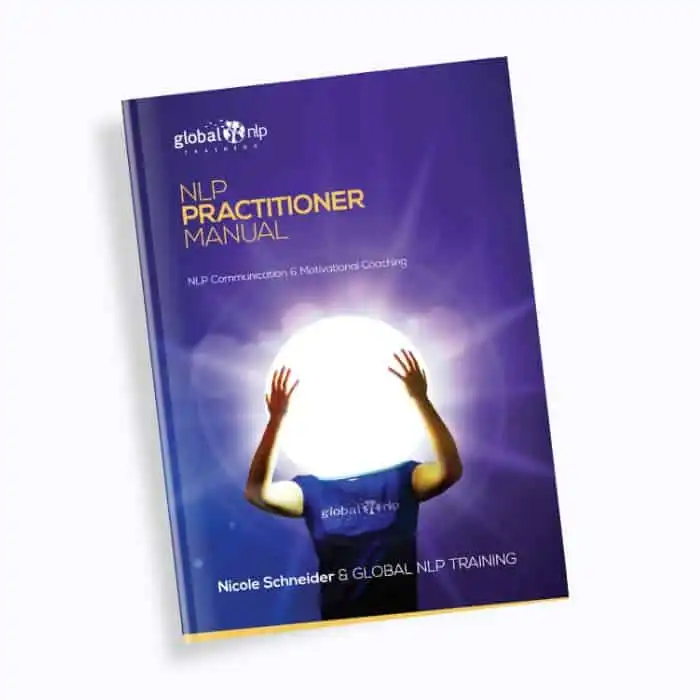Understanding Neuro-Linguistic Programming (NLP)
Neuro-Linguistic Programming (NLP) involves the study of how people think and communicate. By understanding this, leaders can improve their communication skills and influence others more effectively. NLP delves into the connection between language, behavior, and the mind, providing valuable insights for those seeking to enhance their leadership abilities.
1. What is NLP and why it is important for leadership?
Neuro-Linguistic Programming (NLP) is the study of human behavior, language, and thought patterns. It helps leaders understand how people think and communicate, enhancing their ability to influence and inspire others. NLP equips leaders with powerful tools to build rapport, motivate teams, and achieve successful outcomes in their leadership roles.
2. Key principles and techniques of NLP for effective leadership
NLP principles focus on understanding and shaping behavior.
Techniques include modeling successful leaders.
Anchoring positive emotions to boost motivation.
Using language patterns to influence and inspire.
Developing rapport for effective communication.
Visualization for goal-setting and achieving outcomes.
Developing Emotional Intelligence
To excel in leadership, mastering emotional intelligence is crucial. Leaders who understand and regulate their emotions effectively can inspire and motivate their team. By enhancing emotional intelligence through NLP techniques, leaders can build stronger relationships, communicate more empathetically, and navigate challenging situations with resilience and grace.
1. Importance of emotional intelligence in leadership
Emotional intelligence is vital for leaders to connect with their team. Understanding and managing emotions help leaders make sound decisions and handle challenges effectively. Leaders with high emotional intelligence can inspire trust, empathy, and collaboration among team members, fostering a positive work environment conducive to productivity and success.
2. NLP strategies to enhance emotional intelligence as a leader
NLP offers techniques like reframing to shift perspectives and modeling successful behaviors. Leaders can use anchoring to access positive emotions during challenging situations. By practicing sensory acuity, leaders can better understand their team’s feelings and respond empathetically. These strategies empower leaders to enhance emotional intelligence and foster strong relationships in the workplace.
Effective Communication Skills
Effective communication is essential for leadership success. Leaders must convey their message clearly and understand the perspectives of their team. NLP training hones communication techniques like active listening and nonverbal cues. By mastering these skills, leaders can build rapport and inspire trust among their team members, fostering a cohesive and productive work environment.
1. Mastering communication techniques in NLP
Effective communication in NLP involves understanding verbal and nonverbal cues. Leaders learn to listen actively, mirror body language, and use language patterns that resonate with others. These techniques help build rapport, establish trust, and enhance overall communication effectiveness in leadership roles.
2. The role of communication in leadership success
Effective communication plays a crucial role in leadership success. Leaders who communicate clearly and empathetically inspire trust and cooperation among team members. Communication skills enable leaders to convey their vision, motivate others, and address conflicts effectively. Strong communication fosters collaboration, boosts morale, and ultimately contributes to achieving organizational goals.

Building Successful Relationships
Certified NLP offers strategies to build strong professional relationships. Leaders can cultivate trust and rapport by understanding and adapting to others’ communication styles. By leveraging NLP techniques, leaders can enhance connections, foster collaboration, and create a positive work environment. Effective relationship-building is key to successful leadership.
1. NLP strategies for building strong professional relationships
Employing NLP strategies, professionals enhance relationships by mirroring and matching communication styles. Understanding nonverbal cues boosts rapport and trust. Active listening and effective questioning foster deeper connections. By recognizing individual preferences and adapting responses, practitioners create harmonious interactions and strengthen professional bonds.
2. Cultivating trust and rapport as a leader
Leaders cultivate trust and rapport by actively listening and empathizing with team members. They demonstrate authenticity and consistency in their actions to build credibility. Using NLP techniques, leaders mirror communication styles to establish connections. By valuing others’ perspectives and communicating openly, leaders create a positive and trusting environment within their teams.
Conflict Resolution and Problem-solving
Leaders utilize NLP techniques for conflict resolution. They address conflicts by understanding different perspectives and promoting effective communication. Through problem-solving, NLP helps leaders identify root causes and implement innovative solutions. By applying NLP strategies, leaders can navigate challenges constructively, fostering a harmonious work environment conducive to growth and success.
1. Using NLP for conflict resolution in leadership
Leaders utilize NLP techniques to effectively address conflicts in their teams. By understanding different perspectives and promoting open communication, they can resolve issues constructively. NLP helps leaders identify the root causes of conflicts and implement innovative solutions to foster a harmonious work environment.
2. Problem-solving techniques through an NLP lens
Leaders can apply NLP techniques for innovative problem-solving. NLP helps them reframe challenges, think creatively, and identify practical solutions. By leveraging the power of language patterns and mental strategies, leaders can approach problems from different perspectives and overcome obstacles effectively. This leads to improved decision-making and sustainable solutions.

Personal Growth and Leadership Development
Embark on a journey of personal growth and leadership development with NLP. Enhance self-awareness and self-improvement through specialized techniques. Discover how NLP can boost your leadership effectiveness, empowering you to lead with confidence and impact. Join experts like John J. La Valle and Michael Beale to unlock your full potential in leadership and personal growth.
1. Self-awareness and self-improvement in NLP
NLP helps individuals enhance self-awareness by exploring their thoughts and behaviors. It enables self-improvement through identifying and changing limiting beliefs. By understanding oneself better, leaders can make informed decisions and lead authentically. NLP techniques promote personal growth and empower leaders to reach their full potential.
2. How NLP can help in personal growth and leadership effectiveness th
NLP enhances personal growth by fostering self-awareness and self-improvement. It equips leaders with effective communication and relationship-building skills. By utilizing NLP techniques, individuals can develop emotional intelligence and resolve conflicts efficiently. This, in turn, enhances leadership effectiveness and empowers individuals to lead with authenticity and confidence.
This post was delivered to you by the Accessily platform. If you want to showcase your content on our site, visit the Accessily Guest Post Marketplace.





